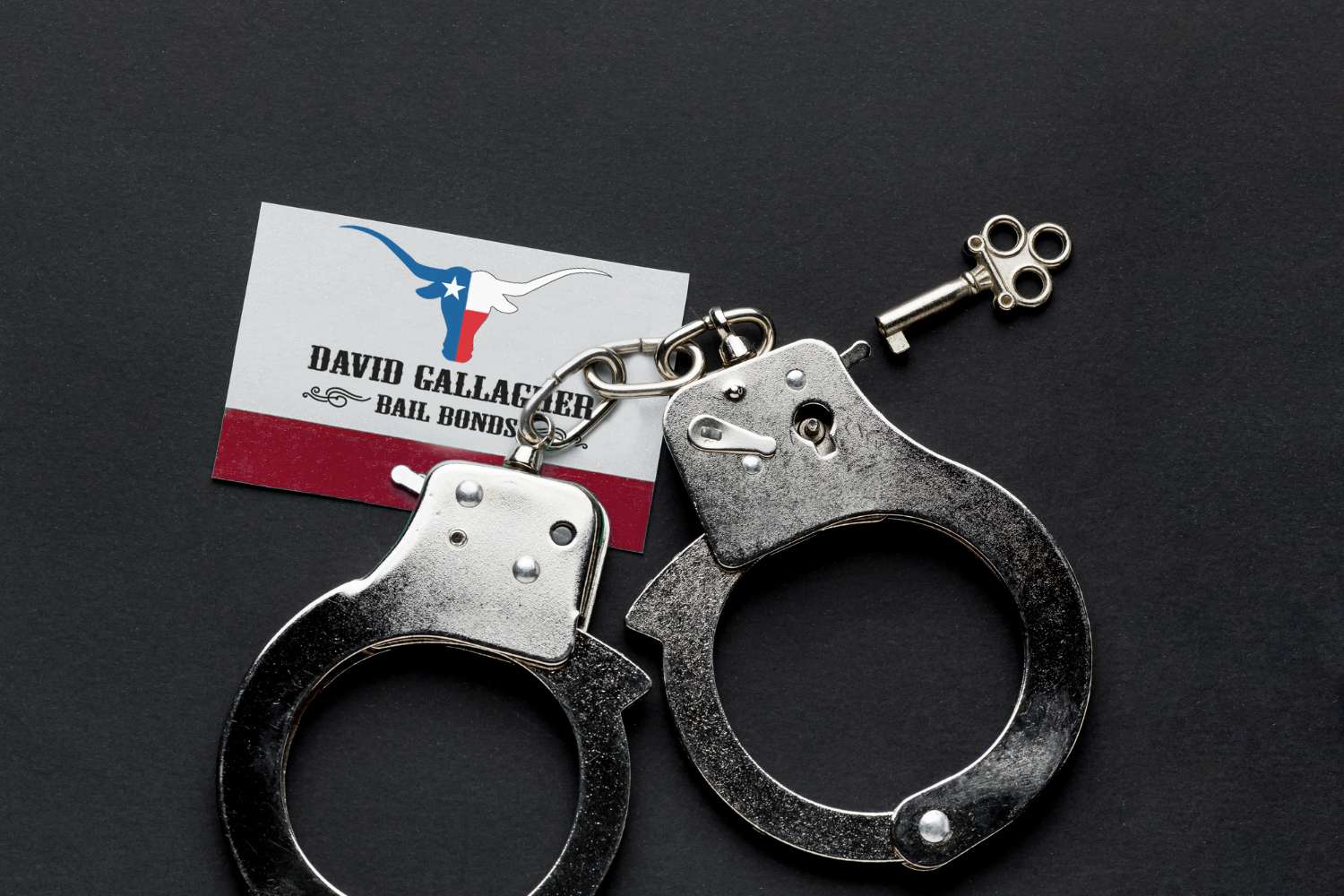Trusted Bail Bonds In Euless, TX

When faced with the challenging situation of a loved one being incarcerated, it’s important to have a trusted bail bonds agent you can trust. At David Gallagher Bail Bonds, we understand the importance of prompt and reliable assistance. With our extensive experience in the industry, we offer quick and efficient bail bond services, ensuring a smooth and hassle-free process. Our dedicated team is available 24/7, ready to provide the support you need during this difficult time. Trust us to help you secure the release of your loved ones and guide you through the legal complexities. Contact us now to get immediate assistance and peace of mind.
Professional Bail Bond Services in Euless, TX
At David Gallagher Bail Bonds, we take pride in providing professional bail bond services in Euless, TX. Our goal is to assist individuals and families in navigating the complex legal system during challenging times. With our extensive knowledge and expertise, we ensure that the bail bonds process is handled with utmost professionalism and efficiency.
Here are some key features of our professional bail bond services:
- Personalized Approach: We understand that every situation is unique, which is why we take the time to listen to your specific needs and tailor our services accordingly. Our experienced bail bondsmen will guide you through the entire bail bond process, answering any questions you may have and offering personalized solutions.
- Fast and Reliable Service: We know that time is of the essence when it comes to securing the release of your loved ones. That’s why we prioritize promptness and work tirelessly to expedite the bail bond process. Our streamlined procedures and 24/7 availability ensure that you can rely on us whenever you need us.
- Confidentiality: We understand the sensitive nature of these situations and the importance of maintaining confidentiality. Rest assured that all your information will be handled with the utmost discretion and kept strictly confidential throughout the bail bond process.
- Knowledge of Local Legal System: With our deep understanding of the Euless, TX legal system, we are well-equipped to navigate its intricacies and guide you through the necessary steps. Our expertise ensures that all requirements are met, minimizing any delays or complications.
At David Gallagher Bail Bonds, we take pride in our commitment to providing our clients with the highest level of experience and expertise. We know that being arrested can be a stressful and overwhelming experience, which is why we’re here to provide compassionate and personalized support every step of the way. When you choose David Gallagher Bail Bonds, you can rest assured that you’re in the hands of experienced professionals who will work tirelessly to secure your release and protect your rights.
24/7 Availability for Bail Bonds Assistance
At David Gallagher Bail Bonds, we understand that legal emergencies can occur at any time, which is why we provide 24/7 availability for bail bond assistance in Euless, TX. We recognize the importance of immediate support and are committed to being there for you whenever you need us.
Here are the key reasons why our 24/7 availability sets us apart:
- Round-the-Clock Support: Our team is available 24 hours a day, 7 days a week, including weekends and holidays. We understand that arrests can happen at any moment, and we want to ensure that you have access to bail bond assistance without delay.
Quick Response Time: When you reach out to us, whether it’s during the day or in the middle of the night, we prioritize your call and respond promptly. Our dedicated team is ready to take immediate action, gathering the necessary information and initiating the bail bond process as soon as possible.
- Reliable Assistance Anytime: We are committed to providing reliable bail bond assistance at any hour. Our professionals are well-prepared to handle your case promptly and efficiently, guiding you through the necessary steps and offering support and reassurance throughout the process.
- Comprehensive Service: Our 24/7 availability extends to all aspects of bail bond needs, including consultations, paperwork, bond processing, and communication with the relevant parties involved. You can count on us to be there every step of the way, ensuring a smooth and efficient process.
When you’re in need of a trusted bail bond company in Euless, TX, you can rely on the 24/7 availability of David Gallagher Bail Bonds. Don’t hesitate to give us a call day or night for immediate assistance.
Contact us now or visit our website to learn more about our 24/7 bail bonds assistance in Euless, TX. Our dedicated team is ready to help you navigate the bail process around the clock.
Expedited Release from Euless, TX Jails
At David Gallagher Bail Bonds, we specialize in facilitating the expedited release of individuals from Euless, TX jails. We understand that time is of the essence when it comes to reuniting your loved ones with their freedom, and we are dedicated to expediting the bail bond process to achieve just that.
Here are the key reasons why we can help you secure an expedited release from Euless, TX jails:
- Extensive Experience: With years of experience in the bail bond industry, we have developed strong relationships with local authorities and understand the intricacies of the Euless, TX jail system. This knowledge enables us to navigate the process efficiently and expedite the release of our loved ones.
- Quick and Efficient Paperwork: Our skilled bail agents are well-versed in the necessary paperwork and legal requirements involved in the bail bond process. We work diligently to ensure all documentation is completed accurately and promptly, minimizing any delays and expediting the release.
- Prompt Communication: We prioritize clear and timely communication with both our clients and the appropriate authorities. Our team maintains constant contact to stay updated on the progress of the case and address any potential issues swiftly, ensuring a smooth and expedited release.
- Proactive Approach: We take a proactive approach to expedite the bail bond process. From the moment you contact our bail bonds company, we will swiftly assess the situation, gather the required information, and initiate the necessary steps to secure the prompt release from jail of your loved ones.
When you need to expedite the release of someone from Euless, TX jails, trust the expertise of David Gallagher Bail Bonds. Contact us today for immediate assistance and let us help you bring your loved ones back home quickly.
Call us now or visit our website to learn more about our services and how we can assist you in securing an expedited release from Euless, TX jails. Our experienced team is ready to take action and bring your loved ones back to you as soon as possible.

Experienced Team Guiding You Through the Bail Process
At David Gallagher Bail Bonds, we pride ourselves on having an experienced team that is dedicated to guiding you through the bail process in Euless, TX. We understand that facing the legal system can be overwhelming, which is why we are here to provide the expertise and support you need during this challenging time.
Here are the key reasons why our experienced team is the right choice to guide you through the bail process:
- In-Depth Knowledge: Our team possesses comprehensive knowledge of the bail bond industry and the specific regulations and procedures in Euless, TX. We stay up-to-date with the latest legal developments to ensure that we provide accurate and reliable guidance throughout the bail process.
- Personalized Assistance: We take the time to understand your unique situation and tailor our guidance accordingly. Our experienced professionals will walk you through each step of the bail process, answering your questions and providing personalized advice to address your concerns and specific needs.
- Strong Relationships: Over the years, we have built strong relationships with local authorities, attorneys, and court personnel in Euless, TX. These connections enable us to navigate the legal system more effectively, streamlining the process and advocating for your loved ones’ prompt release.
- Compassionate Support: We understand that the bail process can be emotionally taxing. Our experienced team is not only well-versed in the legal aspects but also offers empathetic and compassionate support. We are here to listen, offer reassurance, and provide guidance every step of the way.
When you need a reliable and experienced team to guide you through the bail process in Euless, TX, trust David Gallagher, Bail Bonds. Contact us today at (817) 831-8881 for personalized assistance and let us help you navigate this challenging time.
Euless, Tx, and surrounding areas have been able to count on David Gallagher Bail Bonds to get loved ones out of jail fast. We provide fast bail bonds without judgment, so you can rest assured that we will treat your individual case with integrity and respect. Our dedicated professionals are ready to provide the guidance and support you need to secure the release of your loved ones. So if your loved one is in need of a trusted bail bondsman contact a bail bond agent today at (817) 831-8881 to learn more about our experienced team and how we can assist you in navigating the bail process








